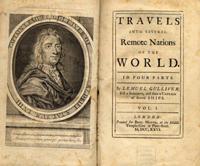
Language: English
Abstract
Why did Jonathan Swift have Lemuel Gulliver condemn modern colonies at the end of Book IV of Gulliver's travels? Literary critics have affirmed, by and large, that Gulliver's statements reflect Swift's profound anti-colonial sentiments. Historians (Wilson, Armitage et. al) by contrast imply that Swift's utterances could have little to do with empire because there was no debate about empire before the late 1730s. I, argue, by contrast that there was a broad pan-imperial crisis ca. 1715-1725 that involved a profound tripartite debate over imperial political economy among Dissident Whigs, Walpoleian Whigs, and Tories. Swift scholars have misunderstood Swift's contribution because they have positioned Swift within a narrow Anglo-Irish dispute that could only involve religion and the constitution. Swift, I maintain, disliked modern commercial colonies of the sort advocated by Dissident Whigs. He thought proper, as opposed to modern colonies, should provide precious metals or valuable commodities (sugar, tobacco) to fuel the metropolitan economy. Swift's disagreement with the Walpoleian Whigs was that they failed to appreciate that Ireland was properly a separate kingdom rather than a colony.
Resources:
Professor Steven Pincus profile
ODNB biography of Jonathan Swift (subscription service)
